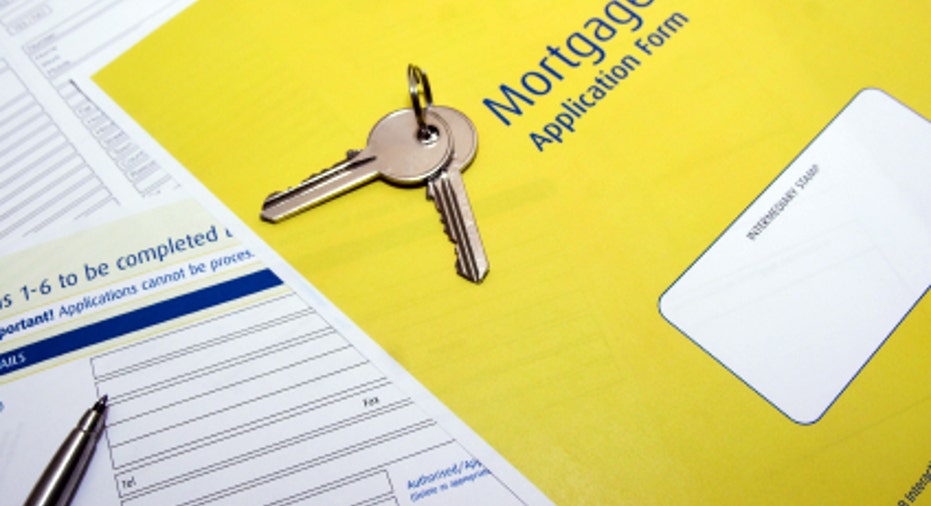Mortgages Inch Up as Investor Confidence Grows

Mortgage rates inched upward this week as investors gain confidence in the economy and banks signal they've strengthened their systems enough to weather another recession.
The benchmark 30-year fixed-rate mortgage rose 4 basis points this week, to 4.15%, according to the Bankrate.com national survey of large lenders. A basis point is one-hundredth of 1 percentage point. The mortgages in this week's survey had an average total of 0.4 discount and origination points. One year ago, the mortgage index was 4.91%; four weeks ago, it was 4.1%.
The benchmark 15-year fixed-rate mortgage rose 4 basis points, to 3.38%. The benchmark 5/1 adjustable-rate mortgage rose 11 basis points, to 3.14%.
"If the economy keeps chugging along, rates could really take off," says John Walsh, president of Total Mortgage Services in Milford, Conn.
Good Economic News
Two key economic indicators signaled to investors this week that the economy might be coming out of the woods. Retail sales figures released Tuesday showed that consumers spent more in stores in February, as sales rose 1.1% compared to January. It may seem like a small change, but that's the biggest gain in five months, according to figures from the U.S. Department of Commerce.
The economy added 227,000 jobs in February, according to a report released last week. While the unemployment rate remains high and stalled at 8.3%, the report shows the labor market has improved for three months in a row.
The Fed also painted a somewhat positive -- or at least not as negative -- picture of the economy after the Federal Open Market Committee met this week.
The Fed says "it anticipates that the unemployment rate will decline gradually," and points that the "strains in global financial markets have eased, though they continue to pose significant downside risks to the economic outlook."
Stronger Banks
Another factor that fueled investors' confidence this week was the Fed's stress test for banks. The Fed evaluated whether banks would have sufficient capital to operate normally and enough money to lend to consumers and businesses during a "severe" economic crisis. Of the 19 banks evaluated, 15 passed the test.
"The idea that these banks are more financially sound" certainly put pressure on rates this week, says Michael Becker, a mortgage banker at WCS Funding in Baltimore.
As investors gain confidence, they target riskier investments such as the stock market, and that usually means higher rates.
"You're seeing money pulled out of the bonds market and going into the stock market," says Derek Egeberg, branch manager for Academy Mortgage in Yuma, Ariz.
The timing for the rate increase is somewhat ironic to underwater borrowers who will finally get a chance to try to refinance their mortgages next week. For months, these borrowers waited for HARP 2.0, the revamped version of the Home Affordable Refinance Program, which allows borrowers to refinance regardless of how deeply underwater they are. The program was announced in October but wasn't widely available until the second half of March because lenders were waiting for Fannie Mae and Freddie Mac to update their automated underwriting systems. The updates will be completed this weekend, and borrowers will be able to apply for HARP 2.0.
Those who manage to lock soon won't get a much higher rate than they would have last week. But that could change soon.
"I've seen interest rates go up three-eighths of a percent in a day and never look back," Walsh says. "Or go up a half of a percent in a very short period of time. Anything can happen."
But there is no reason to panic yet. Even if rates go up, they remain attractive, especially for HARP 2.0 applicants who have been stuck with an interest rate of 6% or higher.
"I'd be shocked if rates hit 5% anytime soon," Egeberg says. "I think we are going to be on the high 4s fairly quickly though."
What does that mean for you? If it makes sense to lock your rate now and you are able to do it, don't waste time, he says.



















